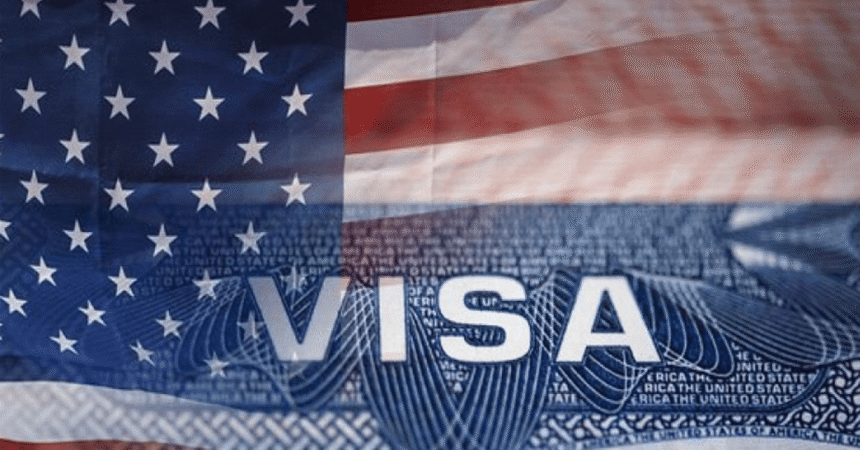The recent announcement that Qatar has been admitted into the U.S. Visa Waiver Program marks a significant milestone in U.S.-Qatar relations and has far-reaching implications for both countries. As the first Gulf nation to enter the program, Qatar’s inclusion reflects its strategic importance in the region and its commitment to meeting the stringent requirements set forth by the United States.
Understanding the Visa Waiver Program
The U.S. Visa Waiver Program (VWP) allows citizens of participating countries to travel to the United States for tourism or business for stays of up to 90 days without needing a visa. This program not only facilitates easier travel but also encourages stronger economic ties and cultural exchange between the U.S. and the participating nations.
To qualify for the VWP, countries must adhere to strict requirements, including cooperation on counterterrorism, law enforcement, immigration enforcement, and border security. These measures ensure that the U.S. maintains a high level of security while promoting international travel and trade.
Qatar’s Path to Inclusion
Qatar’s entry into the VWP is the result of a “significant whole-of-government effort” to meet these rigorous criteria. This involved extensive collaboration with U.S. agencies to improve document security, enhance border management, and strengthen law enforcement measures. By fulfilling these requirements, Qatar has demonstrated its commitment to maintaining security and stability, which is particularly vital given the geopolitical complexities of the Middle East.
In addition to security measures, Qatar has engaged in substantial diplomatic efforts, particularly in mediating conflicts in the region. The small Gulf state has positioned itself as a critical player in negotiations involving various factions, including recent mediation efforts related to the war in Gaza. This diplomatic role has further solidified its importance to U.S. interests in the region.
The Broader Implications for U.S.-Qatar Relations
The admission of Qatar into the VWP is likely to deepen the strategic partnership between the two nations. U.S. Secretary of State Antony Blinken highlighted that this development will enhance the flow of people and commerce, fostering a more robust economic relationship. The ability for Qatari citizens to travel freely to the U.S. can open up new opportunities for business, tourism, and cultural exchange, creating a more interconnected relationship.
Economic Opportunities
With the inclusion in the VWP, Qataris can travel to the U.S. for business purposes without the need for a visa, making it easier for them to explore investment opportunities. The U.S. is home to a diverse array of industries, including technology, finance, and healthcare, that could benefit from Qatari investments. Likewise, U.S. businesses may find it easier to enter the Qatari market, which has been increasingly attractive due to its economic diversification efforts.
Moreover, the tourism sector is expected to see significant growth.
Qatari citizens will be able to visit the U.S. for leisure without the hassle of obtaining a visa. This could lead to increased spending in the U.S. economy, benefiting various sectors, including hospitality, retail, and entertainment.
Security Collaboration
Beyond economic ties, the U.S. and Qatar have a strong security partnership that is likely to be reinforced by this new development. Qatar has been a key ally in the fight against terrorism and has collaborated with the U.S. in various security initiatives. The two nations have worked together on issues ranging from counterterrorism to military cooperation, and the admission to the VWP signifies a mutual commitment to enhancing these efforts.
In recent years, Qatar has also taken steps to improve its internal security measures, addressing concerns about terrorism and crime. The U.S. has recognized these efforts, which likely played a role in Qatar’s successful application for the VWP. This collaboration is crucial, especially given the ongoing conflicts in the region and the need for stable allies.
The Role of Qatar in Regional Stability
Qatar’s geopolitical position and its willingness to engage in diplomacy have made it a key player in regional stability. Its role as a mediator in various conflicts, including its recent involvement in negotiations between Hamas and Israeli officials, highlights its influence in Middle Eastern politics.
The small nation has leveraged its resources and diplomatic channels to facilitate dialogues that may lead to peace and stability in the region. This capability aligns with U.S. interests in promoting stability and countering extremist ideologies, further solidifying the rationale for Qatar’s inclusion in the VWP.
Humanitarian Efforts and International Relations
Qatar’s engagement in humanitarian efforts has also contributed to its image as a responsible international actor. The country has provided substantial aid to regions affected by conflict, including Syria and Yemen, and has been involved in various humanitarian initiatives that align with international norms and values. This commitment to humanitarian assistance can further enhance its standing in the international community and strengthen its ties with the U.S.
The ability to participate more actively in international dialogues and negotiations, facilitated by the ease of travel to the U.S., will enable Qatar to amplify its voice on critical global issues. As a result, it may play a more prominent role in shaping policies and responses to pressing challenges, from climate change to global health crises.
Educational and Cultural Exchange
The VWP also opens up avenues for educational and cultural exchange between the two nations. Qatari students and professionals will have greater access to U.S. educational institutions, fostering knowledge exchange and collaboration in various fields, including science, technology, and the arts.
This increased interaction can lead to a more profound mutual understanding between the two cultures, breaking down stereotypes and building long-lasting relationships. Cultural exchanges can pave the way for greater cooperation in addressing global challenges, encouraging collaborative efforts in research and innovation.
Potential Challenges Ahead
While Qatar’s entry into the VWP is a positive development, it is essential to consider the potential challenges that may arise. Increased travel and commerce could also pose security risks, necessitating continued vigilance from both nations. The U.S. will need to monitor the situation closely to ensure that the security measures in place remain effective.
Domestic Implications in Qatar
Internally, Qatar may face challenges as it balances its increased international engagement with domestic priorities. As the country opens its borders to more travelers, there may be concerns about maintaining security and managing the influx of visitors. The government will need to invest in infrastructure and security measures to ensure that the benefits of the VWP do not come at the expense of safety and stability.
Moreover, the potential for increased foreign influence could lead to social and political challenges within Qatar. As the nation becomes more integrated into global systems, it may face pressures to adapt its policies and practices in ways that align with international norms. Balancing these external pressures with domestic interests will be a critical task for Qatari leadership.
Regional Dynamics
Regionally, Qatar’s growing influence may lead to tensions with neighboring countries that view its ascent with suspicion. Its proactive diplomatic role and partnerships with global powers, particularly the U.S., could be perceived as a challenge to the traditional balance of power in the Gulf. This dynamic necessitates careful navigation to avoid escalating tensions and to maintain regional stability.
Qatar will need to continue its diplomatic engagement with other Gulf states and regional powers to foster a collaborative environment. Dialogue and communication will be essential in mitigating misunderstandings and building trust among nations with differing perspectives and interests.
The Path Forward
Looking ahead, both Qatar and the U.S. stand to benefit from this new chapter in their relationship. The visa waiver will not only enhance personal connections between the citizens of both nations but will also strengthen economic ties and bolster security cooperation.
The U.S. will likely continue to engage with Qatar on various fronts, from trade to security, ensuring that the partnership remains mutually beneficial. For Qatar, the opportunity to deepen its ties with the U.S. could serve as a catalyst for further economic growth and diplomatic influence.
Building on Shared Interests
As both nations look to the future, they will need to build on their shared interests in promoting stability, security, and prosperity. The U.S. will benefit from a stable and cooperative partner in Qatar, while Qatar will gain from enhanced access to the U.S. market and international networks.
The mutual commitment to addressing global challenges, such as climate change, public health, and regional security, will further solidify the partnership. By working together, the U.S. and Qatar can leverage their strengths to tackle these pressing issues, enhancing their global standing and influence.
Long-Term Strategic Partnership
The admission of Qatar into the VWP is a significant step in establishing a long-term strategic partnership that transcends individual administrations and geopolitical shifts. Both nations will need to engage in regular dialogues to assess the evolving landscape and adapt their strategies accordingly.
Maintaining open lines of communication and fostering a culture of collaboration will be vital in ensuring the partnership thrives in the years to come. As both nations navigate an increasingly complex global environment, the ability to rely on each other’s strengths and resources will be invaluable.
#Qatar #VisaWaiverProgram #USQatarRelations #MiddleEastDiplomacy #Travel #EconomicPartnership #SecurityCooperation







